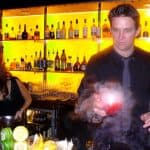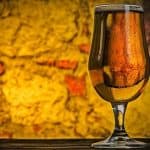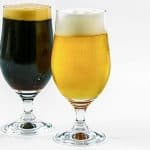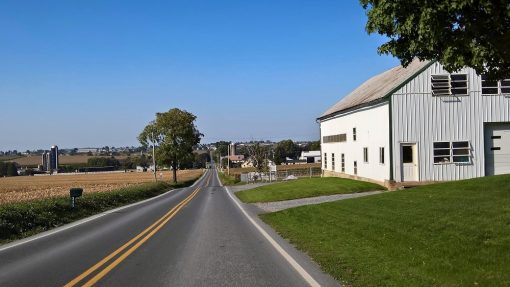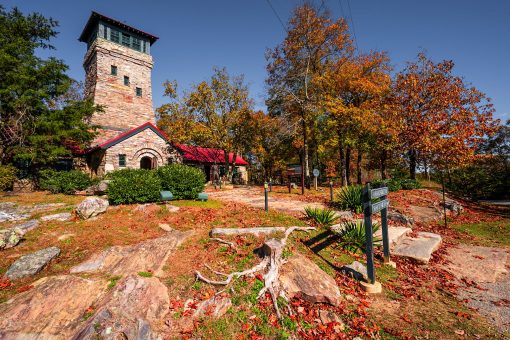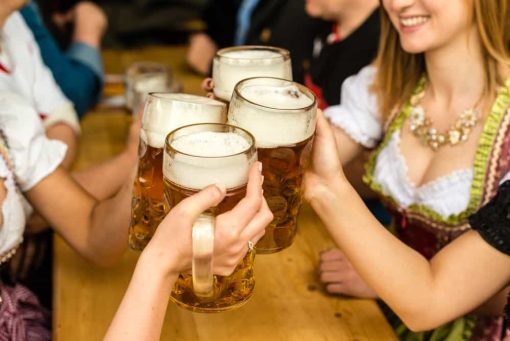The Prohibition craze that’s manifesting in the nation’s bars, bookstores and TV programs will spark even more interest when the American Spirits: The Rise and Fall of Prohibition makes its debut at Philadelphia’s National Constitution Center, which is curating and hosting the first-of-its-kind exhibition from October 19, 2012 to April 28, 2013. The exhibit contains 120 rare artifacts, including original ratification copies of the 18th and 21st Amendments, and interactive elements such a recreated speakeasy where visitors can learn to dance the Charleston.
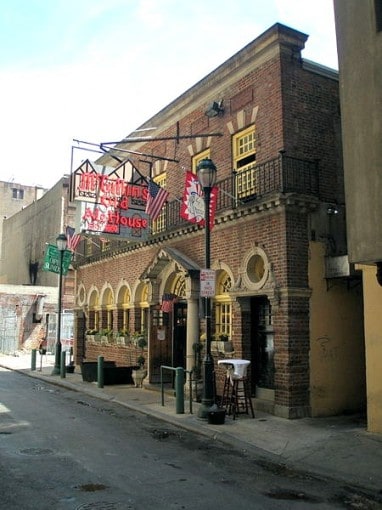 Outside the Constitution Center, visitors can partake in the Prohibition party at bars, restaurants and shops offering secret entrances, classic cocktails and liqueur-soaked sweets. Here are some places in Philadelphia where the mystique of Prohibition lives on:
Outside the Constitution Center, visitors can partake in the Prohibition party at bars, restaurants and shops offering secret entrances, classic cocktails and liqueur-soaked sweets. Here are some places in Philadelphia where the mystique of Prohibition lives on:
Remnants Of History:
- Founded in 1921 as McNally’s Quick Lunch, family-owned McNally’s Tavern flouted Prohibition laws by secretly serving alcohol to its customers. Then-owner Rose McNally did so rather successfully, too, say her granddaughters who now operate the business: A citation from a 1920s enforcement raid hangs by the door as a memento. Today, McNally’s is best appreciated for a product it sells legally: the revered Schmitter, a proprietary mile-high cheesesteak and grilled salami sandwich piled with cheese, tomatoes and grilled onions. Address: 8634 Germantown Avenue.
- “Ma” McGillin helped sustain McGillin’s Olde Ale House – the oldest continuously operating tavern in Philadelphia – through Prohibition. When she locked the front doors of the popular bar, she opened up the side and back doors to the knowing public and hired a chef to help her masquerade as an eatery. All the while, the world’s best-known performers entertained in private rooms upstairs. Decades later, one of these rooms still fills with patrons cheering Philadelphia’s sports teams on, as does the ever-packed main bar downstairs. Address: 1310 Drury Street.
- The Cherry Street Tavern opened in 1900 and stayed that way throughout Prohibition by replacing its bar with a barber’s chair. But patrons were able to get more than a shave and a haircut. Although the sign proclaiming “Ladies’ Entrance” no longer hangs over the side door, a urine trough still reminds today’s visitors of the bar’s long and tenacious history. Current day customers find it to be a comfortable corner bar with good service and hearty hot roast beef sandwiches. Addresses: 129 N. 22nd Street.
For Those In The Know:
- Despite its owner’s protests that his new Chinatown spot does not mimic Prohibition-era establishments, the local media has anointed Hop Sing Laundromat a speakeasy-style bar.At the discreet space, patrons can have their shoes shined in the lobby but are forbidden from taking pictures or using cell phones in the main lounge. Servers concoct cocktails table-side, bringing rare bottles over in a rolling cabinet. And patrons enjoy food from neighborhood restaurants under the glow of candles and vintage lighting fixtures. Address: 1029 Race Street.
- Considered the city’s closest approximation to a real speakeasy, Fiume is a secret even to the city’s most savvy nightlife denizens. Located in what resembles a private living room, this West Philadelphia music venue has no sign, no phone and no presence on Internet mapping sites. The only way to find it, in fact, is to be in the know or to climb the stairs that ascend above the Ethiopian restaurant Abyssinia.Address: 229 S. 45th Street.
- Holding court on an obscure back street for the past 35 years, the palatial MarrakeshMoroccan den is unmarked and indiscernible from the outside. In-the-know diners knock to gain entry to the restaurant. When the heavy solid door opens, a host leads them through a heavy curtain before the sights and scents of North Africa tantalizingly reveal themselves. On weekends, belly dancers add to the ambiance. Address: 517 S. Leithgow Street.
- With its enormous outdoor neon sign that proclaims that a “BAR” lurks beneath it, Prohibition Taproom wouldn’t have succeeded in eluding Prohibition’s watchdogs. But modern-day patrons can rest easy in the comfort of a dark room lit only by a string of light bulbs and the knowledge that the bar that provides their solace is one of the only signs of commercial life within blocks of the developing Loft District in which it resides. Address: 501 N. 13th Street.
- To find the chandelier-bedecked, gold-accented, leather-bound Ranstead Room in its back-alley hideaway, party-goers must scour Ranstead Street for a red-brick façade, a dark door and two adjoining “R’s” painted on the portal. Once the entrance is spotted, there’s still another set of doors to cross before reaching the subdued interior, where craft cocktail specialists shake and stir their way into people’s hearts. Address: 2013 Ranstead Street.
Crazy About The Classics:
- The bar staff at The Farmer’s Cabinet dresses like old-time barkeeps and pours some of the city’s most serious and inspired hand-crafted cocktails. This Victorian-era bar takes its cues from the farm-to-table movement and adds a heavy splash of Pre-Prohibition character through its extensive beer and spirits menu. The place is lit by hundreds of candles and adorned with photos one would expect to see in a centenarian’s house. Address: 1113 Walnut Street.
- At Chick’s Social Kitchen + Bar, bartenders concoct fresh versions of old classics using absinthe, the licorice-like spirit popular amongst pre-war expats that was, until recently, banned in the United States. Devoted to interpretations of classic cocktails, Chick’s adds drama to the cityscape with drinks like the updated Sazerac, made with Peychaud’s Bitters, Jim Beam Rye and simple syrup that’s poured into a glass rimmed with Herbsaint absinthe. Address: 614 S. 7th Street.
- Patrons shouldn’t be offended if a bouncer makes them wait on the sidewalk for entry into the swank, below-ground temple to liquid luxury—it’s just The Franklin Mortgage & Investment Co.’s way of ensuring that each one of its guests has a seat on a leather banquette. It’s only appropriate that the lucky few who get to partake in the hushed atmosphere, hand-chipped ice and elaborately constructed throwback cocktails have a chance to enjoy them properly. After all, the bar is named after the business that fronted for the country’s largest Prohibition-era alcohol ring, which was based right in Philadelphia. Address: 112 S. 18th Street.
- One of the first bars to pioneer the classic cocktail craze in Philadelphia was Southwark Restaurant, whose menu runs wild with old-fashioned drinks like the Pisco Sour, Sidecar, Old-Fashioned and Manhattan. For purists, more than 30 rye whiskeys line the menu, and almost 20 variations of gin keep the liquid staples of Prohibition alive and pouring. Address: 701 S. 4th Street.
- The aesthetic centerpiece of Time restaurant is a 1930s chandelier, but what truly sets this parlor apart is its whiskey lounge – serving 11 varieties of rye – and its Bohemian Absinthe Lounge. Visitors climb the stairs to enter a Parisian-style salon where patrons go to relax over the sounds of a DJ and the ritual of preparing absinthe from a two- or four-person tower. Address: 1315 Sansom Street.
- Iron Chef Jose Garces recreates a 1930s Windy City saloon with Village Whiskey – complete with décor that’s evocative of the period and bartenders who dress the part. Garces distills his drinks into “Prohibition” and “Repeal” categories, with the former describing drinks inspired but not conceived during the 1920s and ’30s, and the latter indicating recipes that were invented just after the 21st Amendment repeal of the 18th Amendment. Village Whiskey lives up to its name with a dozen selections of rye whiskey, one of the spirits that formed the centerpiece of Al Capone’s bootlegging empire. Address: 118 S. 20th Street.
A Long Way From Moonshine:
- After studying the history of root beer, which became a non-alcoholic beverage during the Temperance movement of the 19th century, Philadelphia advertising executive Steven Grasse experimented with variations on root beer’s ingredients to develop ROOT,an 80-proof spirit that relies heavily on birch bark. Certified organic, it’s sold throughout the United States.
- Philadelphia Distilling, Pennsylvania’s first craft distillery to open since 1919, produces four liquors with ties to Prohibition. New to the roster is Shine, a corn whiskey distilled three times in a copper pot still that pays homage to Philadelphia’s history as a center for moonshine distillation in the 1920s. Bluecoat American Dry Gin serves as the brand’s most widely recognized spirit. It’s distilled five times in a copper pot still, which was the traditional distillation method until it became a favorite for amateurs who aged it in their bathtubs during Prohibition. Then, there’s Penn 1681 Rye Vodka, a spirit that pays homage to Pennsylvania distillers who manufactured rye vodka long before Temperance. Absinthe, illegal in the U.S. until 2007 and romanticized for the role it played in 1920s Paris, resurges in the form of Vieux Carré. All four spirits are available statewide. Address: 12285 McNulty Road.
Beyond The Bars:
- Perhaps the most famous figure to emerge from Prohibition was gangster Al Capone, whose bootlegging empire has become legendary. Although Capone ruled his kingdom from Chicago, he spent eight months—from 1929 to 1930—in Philadelphia’s historic Eastern State Penitentiary after being arrested here for carrying a concealed weapon.Visitors can still visit his cell, which he lavishly outfitted with paintings, a polished desk and an expensive cabinet radio receiver. Address: 22nd Street & Fairmount Avenue.
- If bootleg drinkers had thought to hide their gustatory contraband inside food, they might have turned to the bakers at Betty’s Speakeasy, a storefront and café that tucks beer and liquor into cupcakes. Local beers and national spirits find their secret hideaways within the “Bootleggers” series of cupcakes. And if a hint of alcohol isn’t enough, rebels can up the ante with four flavors of liqueur-soaked pound cake. Address: 2241 Grays Ferry Avenue.
Photo credits: Bruce Andersen via wikimedia commons (McGillin’s Olde Ale House);
You might also enjoy
Mary Jo Manzanares is a founder and the editor-in-chief of The Traveler’s Way, an online travel magazine proving informational and inspirational travel recommendations for curious Baby Boomer travelers. She has been a speaker at various industry events and has a personal travel blog at Traveling with MJ. When she’s not traveling, Mary Jo likes lingering over a cup of coffee, wandering in a museum, sipping wine at a cafe, and sharing it all with friends and readers. Mary Jo’s top travel destinations are Italy, Portugal, and the Caribbean.
